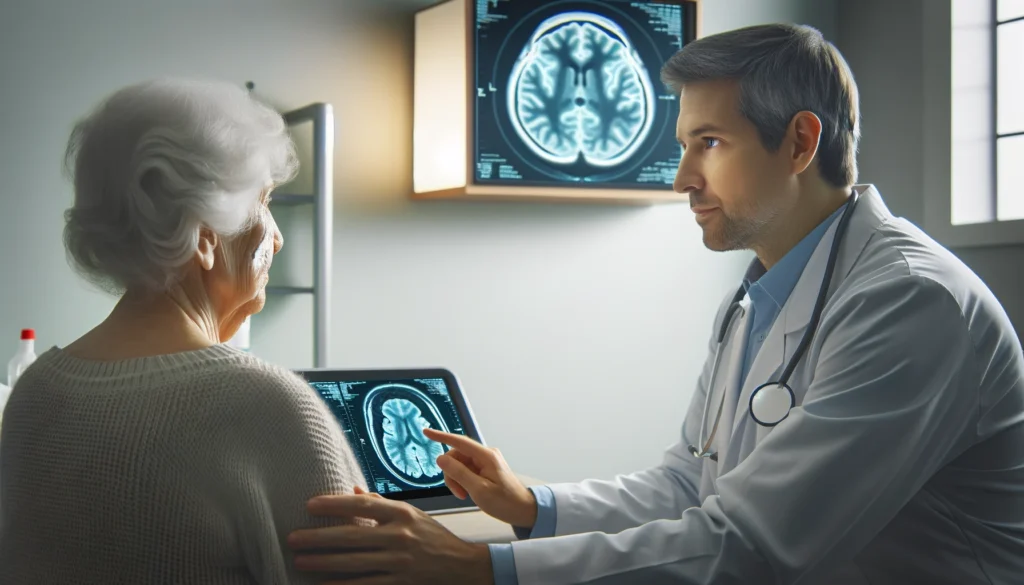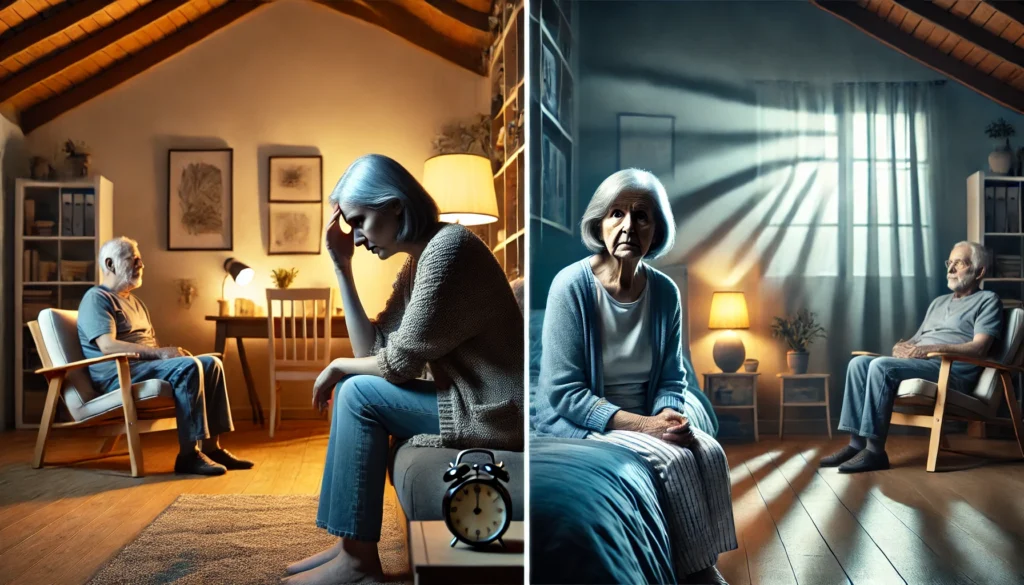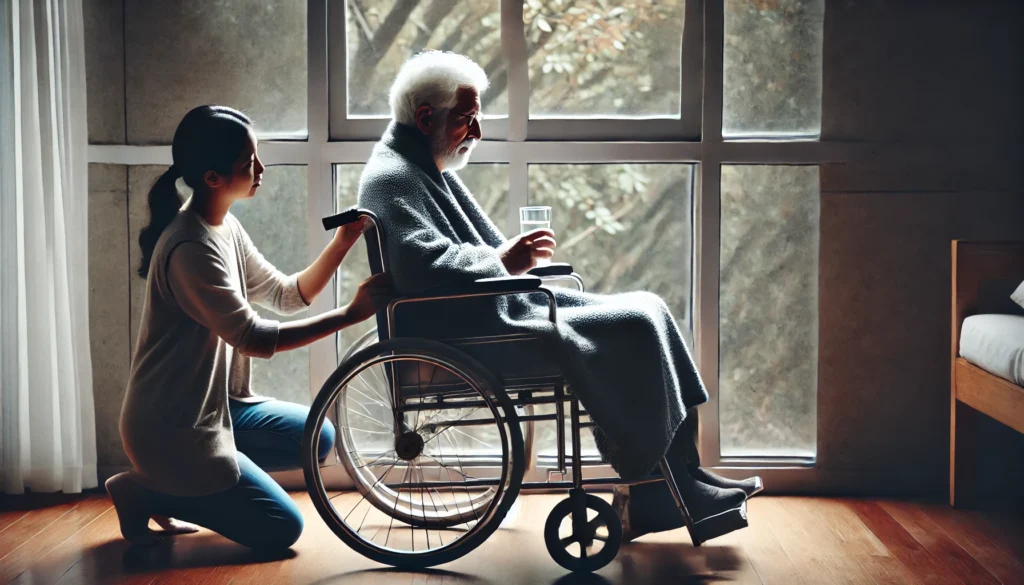Introduction
Dementia is not a single disease but a collective term for the impaired ability to remember, think, or make decisions that interferes with doing everyday activities. Although dementia primarily affects older adults, it is not a part of normal aging. Knowing how to detect dementia early can dramatically improve outcomes, offering time for interventions that may slow progression, ease symptoms, or prepare individuals and families for the journey ahead. Yet early signs are often subtle, misunderstood, or even mistaken for other conditions. The question many ask—is it dementia or something else—can delay timely diagnosis, leading to more advanced symptoms by the time help is sought.
You may also like: How to Stop Cognitive Decline: Science-Backed Steps for Prevention and Brain Longevity
The first signs dementia checklist is frequently overlooked due to misinterpretations or generalizations of aging. Worse still, the presence of symptoms similar to dementia—like depression, vitamin deficiencies, or thyroid problems—can further cloud the picture. As research in neuroscience continues to evolve, we now understand more about the dementia clinical manifestations, how they affect brain and body, and why it’s so important to distinguish them from dementia like symptoms that arise from other treatable causes. This article dives deep into the nuances of early signs, the diagnostic process, the effects of dementia on a person’s life, and what proactive steps you can take for yourself or a loved one.
Understanding Dementia and Its Many Forms
Dementia is an umbrella term used to describe a range of neurological conditions affecting cognitive function. Alzheimer’s disease accounts for approximately 60–80% of dementia cases, but there are several other types, including vascular dementia, Lewy body dementia, and frontotemporal dementia. Each type has its unique characteristics and progression pattern, but all forms eventually lead to a loss or decline in mental function, which is known clinically as cognitive decline.
In the early stages, dementia may go unnoticed because the dementia character doesn’t always appear dramatically different from someone simply dealing with stress, lack of sleep, or aging. The presence of dementia like symptoms—such as forgetfulness, misplacing items, or confusion with time and place—can be written off as normal. However, as these signs become more frequent and disruptive, they align more closely with brain disease dementia, reflecting neurological changes rather than benign forgetfulness.
Notably, some causes of dementia symptoms are reversible, especially if caught early. For instance, untreated sleep apnea, alcohol abuse, or head trauma can result in cognitive symptoms that mimic dementia but may improve with treatment. This is why proper assessment and early detection of dementia are crucial.

Recognizing the First Warning Signs
Detecting dementia before it progresses into advanced stages requires careful observation of changes in memory, behavior, and function. The first signs dementia checklist often includes short-term memory loss, struggling to find words, mood changes, and difficulty performing once-familiar tasks. These issues can be subtle at first—missed appointments, asking the same questions repeatedly, or showing confusion in conversations.
One of the key challenges is that many early symptoms can overlap with other conditions. Depression, anxiety, and chronic stress are among the 3 symptoms or conditions that could be mistaken for dementia. Furthermore, medications or infections in older adults can lead to acute confusion or delirium, adding to diagnostic complexity.
For a person with dementia, these early signs may be frustrating and frightening. They may become withdrawn, irritable, or attempt to mask their difficulties. Loved ones are often the first to notice these changes, though they may also misattribute them to age or personality quirks. This is where understanding the dementia checklist becomes vital—not only to spot red flags but to provide a basis for seeking professional evaluation.

How to Diagnose Dementia Early
Knowing how to diagnose dementia early can be the difference between proactive care and reactive crisis management. A thorough diagnosis includes a combination of physical exams, medical history, cognitive testing, neuroimaging, and lab work to rule out reversible conditions. Clinicians look for hallmark dementia clinical manifestations, such as disorientation, impaired judgment, and language difficulties.
Early intervention is particularly beneficial for slowing cognitive decline, managing symptoms, and planning future care. In some cases, cognitive training, lifestyle changes, and medications like cholinesterase inhibitors may help preserve function for longer.
It’s critical to work with a healthcare provider trained in neurodegenerative diseases to determine dementia accurately. Family members should provide input when possible, as individuals may downplay or be unaware of their symptoms. Brain scans can help detect structural changes linked to brain disease dementia, especially in distinguishing Alzheimer’s from other types.
The diagnostic process also includes ruling out symptoms similar to dementia caused by vitamin B12 deficiency, thyroid imbalance, or urinary tract infections—all of which are treatable. That’s why a comprehensive approach is key.

Dementia-Like Symptoms That Can Mislead Diagnosis
When it comes to dementia, appearances can be deceiving. Dementia like symptoms are often caused by other medical or psychological conditions. For example, depression can lead to apathy, slowed thinking, and memory lapses, often mistaken for early Alzheimer’s. Similarly, medication side effects, especially from sedatives or anticholinergics, can cause confusion and impaired thinking.
Another common mimic is normal pressure hydrocephalus, a brain condition that causes walking difficulties, urinary incontinence, and cognitive problems. This condition is sometimes treatable with surgical intervention. That’s why distinguishing dementia character from other causes is so crucial.
Delirium, a sudden and severe state of confusion, can also mimic severe dementia symptoms, especially in hospitalized elderly patients. Unlike dementia, delirium develops rapidly and often has a reversible cause. By identifying and treating these conditions that could be mistaken for dementia, clinicians can avoid misdiagnosis and deliver more effective care.
It’s natural to wonder, will I get dementia if you notice some forgetfulness or changes in focus. But self-awareness and concern are actually positive signs, as people with true dementia often lack insight into their deficits. Nevertheless, these concerns warrant a professional evaluation, especially if symptoms persist or worsen.
What Dementia Does to a Person’s Life and Identity
Understanding what dementia does to a person involves more than just recognizing memory loss. Dementia gradually alters personality, behavior, social interactions, and even how someone sees the world. As it progresses, the disease chips away at independence, making it harder to manage finances, keep appointments, or maintain hygiene.
The effects of dementia extend beyond cognition. They influence mood, causing anxiety, depression, or paranoia. In some cases, the dementia character may involve aggression, hallucinations, or inappropriate behavior, which can be distressing for both the individual and their caregivers.
For demented people, everyday tasks become increasingly complex. Managing medications, preparing meals, or even recognizing loved ones can become challenges. Caregivers often speak of a “grieving while present” phenomenon—watching someone slowly fade while still physically present.
Moreover, dementia affects self-worth and autonomy. People who were once leaders in their communities or providers for their families may feel lost or infantilized. Social withdrawal is common, and the isolation can deepen emotional suffering. That’s why emotional support and structured routines are just as vital as medical care in dementia treatment.
The Physical Toll: What Dementia Does to the Body
While dementia is primarily a neurological condition, its impact isn’t limited to the brain. Understanding what dementia does to the body is essential in anticipating complications and improving quality of life. As the disease progresses, motor skills may decline, leading to difficulty with coordination, walking, and even swallowing.
This decline increases the risk of falls, malnutrition, dehydration, and infections. In advanced stages, severe dementia symptoms may include loss of bladder or bowel control, inability to communicate verbally, and total dependency for all daily activities. Pneumonia becomes a common cause of death, often due to aspiration from swallowing difficulties.
Sleep-wake cycles can also become disrupted, with individuals sleeping during the day and wandering at night. This not only impacts their health but also strains caregivers who must remain vigilant. Muscle atrophy from inactivity, pressure sores from immobility, and complications from being bedridden can further deteriorate physical health.
The effects of dementia are holistic—they do not isolate themselves to memory or mood but eventually alter every aspect of bodily function. Preventative physical therapy, nutrition plans, and palliative care are all critical in managing late-stage dementia.
Building a Comprehensive Dementia Checklist
To make early identification easier, many healthcare organizations have created structured tools like the dementia checklist, which helps assess whether further evaluation is needed. These tools often cover memory function, language skills, orientation to time and place, changes in behavior, and ability to perform daily tasks.
Some checklists are designed for self-assessment, while others are meant for caregivers or clinicians. Items may include questions like: Does the person repeat the same stories? Have they become confused in familiar settings? Are they making poor financial decisions or neglecting personal hygiene?
This first signs dementia checklist is especially helpful in identifying patterns over time. It allows family members to track symptoms and communicate effectively with healthcare providers. When paired with medical assessments, it contributes significantly to how to detect dementia in its earliest form.
It’s worth noting that even when a checklist indicates cognitive decline, it does not confirm a diagnosis. Instead, it signals the need for further testing. Still, such checklists serve as an invaluable first step toward early detection of dementia, especially for those who might otherwise delay seeking help.
Emotional and Social Considerations for People With Dementia
Beyond symptoms and biology, dementia also alters relationships and emotional landscapes. A person with dementia may become fearful, suspicious, or emotionally volatile. These changes can strain marriages, friendships, and family dynamics.
As memory fades, so too may emotional connections. Spouses might feel more like caregivers than partners. Children often report feeling like they’ve “lost a parent” long before death occurs. Recognizing and supporting these emotional transitions is essential.
Additionally, the social stigma around dementia can lead to isolation. Demented people may withdraw from activities they once enjoyed, either due to embarrassment or frustration. Caregivers may feel overwhelmed, guilty, or unsupported.
Addressing the effects of dementia on emotional health requires a community-based approach—support groups, counseling, and education can help both patients and families navigate this complex journey.

When Is It Dementia—and When Is It Something Else?
With so many overlapping symptoms, many people ask: Is it dementia or something else? The answer lies in comprehensive evaluation. The presence of memory loss alone is not enough to confirm dementia. Conditions like depression, chronic sleep deprivation, or even dehydration can lead to symptoms similar to dementia.
Even individuals with high blood pressure, diabetes, or cardiovascular disease may experience cognitive fluctuations unrelated to brain disease dementia. Substance abuse, especially alcohol or benzodiazepines, can lead to persistent cognitive symptoms that may be reversible with abstinence.
The challenge is that by the time many people seek help, damage may already be extensive. That’s why knowing how to determine dementia early is so important. Neuropsychological tests, brain imaging, and metabolic screenings can provide clarity.
The key takeaway is not to delay evaluation. The earlier the diagnosis, the more options are available for treatment, lifestyle changes, and support. Whether it’s truly dementia or one of many conditions that could be mistaken for dementia, identifying the root cause is essential to providing appropriate care.
Frequently Asked Questions
1. What are the earliest signs of dementia most people overlook?
Many people miss early signs such as mild forgetfulness, subtle personality shifts, or difficulty planning tasks. These changes can be mistaken for stress or aging, yet they are common indicators of dementia clinical manifestations. For instance, repeating questions or misplacing items regularly may reflect deeper cognitive disruption. When these signs persist and interfere with daily function, it’s time to consider early detection of dementia.
2. Can depression cause dementia-like symptoms?
Yes, depression is one of the most common 3 symptoms or conditions that could be mistaken for dementia. It can cause low energy, memory issues, slow thinking, and lack of concentration. This condition, sometimes called pseudodementia, often improves with appropriate mental health treatment. However, distinguishing between true dementia and mood-related cognitive impairment requires professional assessment.
3. How is dementia diagnosed in younger adults?
Dementia in younger adults is rare but often misdiagnosed. Diagnosis includes neurological exams, cognitive tests, and scans to detect brain changes. Since younger individuals may not fit the typical profile of demented people, their symptoms similar to dementia can be dismissed or misunderstood. Early diagnosis remains critical for access to support services and treatment.
4. Are there genetic tests that can tell me if I’ll get dementia?
While genetics play a role, especially in early-onset Alzheimer’s, most cases of dementia are not inherited. Genetic tests may identify risk factors like APOE-e4, but they cannot predict with certainty who will develop the disease. If you’re concerned and wonder, will I get dementia, consulting a genetic counselor and neurologist can provide personalized insight.
5. How do dementia symptoms differ from normal aging?
Normal aging might include slower recall or occasional forgetfulness, but dementia causes profound and progressive cognitive loss. Key differences include losing the ability to learn new information, disorientation in familiar settings, and poor judgment. These changes reflect a loss or decline in mental function, distinguishing them from benign age-related forgetfulness.
6. What are the severe dementia symptoms to watch for?
In advanced stages, individuals may lose the ability to communicate, walk, or recognize loved ones. Severe dementia symptoms include incontinence, inability to feed oneself, and unresponsiveness. These changes indicate significant brain damage and usually require full-time care. Managing comfort and dignity becomes the priority in these stages.
7. How do I use a dementia checklist to evaluate someone?
A dementia checklist is a practical tool that tracks changes in memory, function, and behavior over time. It includes observations about daily living skills, personality changes, and cognitive decline. Using it consistently allows caregivers and physicians to monitor progression and assess when intervention is needed. While it doesn’t confirm diagnosis, it’s a valuable guide toward how to detect dementia effectively.
8. Can certain medical conditions mimic dementia?
Absolutely. Conditions such as hypothyroidism, vitamin B12 deficiency, and brain tumors can cause dementia like symptoms. Additionally, medication interactions, infections, or metabolic imbalances may temporarily impair cognition. Differentiating these from true brain disease dementia requires lab tests, scans, and medical expertise.
9. What happens in the brain during dementia?
Dementia leads to neuron damage and death, causing brain shrinkage and functional loss. Depending on the type, it may affect the hippocampus (memory), frontal lobes (judgment and behavior), or temporal lobes (language and comprehension). These changes explain both the cognitive and physical effects of dementia and its relentless progression over time.
10. How can lifestyle affect dementia risk or progression?
Lifestyle factors like physical activity, mental stimulation, and a healthy diet have been linked to lower dementia risk. Managing hypertension, diabetes, and cholesterol also reduces risk. While these strategies may not prevent all cases, they support brain health and could delay onset, especially in those predisposed. If you’re exploring how to determine dementia risk, consider these modifiable factors part of your toolkit.

Conclusion
Understanding how to detect dementia before it worsens begins with awareness, observation, and a willingness to act early. While many people dismiss the signs as aging or stress, the reality is that early recognition and diagnosis can transform outcomes. Whether you’re looking out for yourself, a parent, or a spouse, knowing the difference between dementia like symptoms and true brain disease dementia is critical.
From subtle forgetfulness to changes in personality and coordination, dementia reveals itself in stages. Yet, with tools like the first signs dementia checklist, deeper insight into dementia clinical manifestations, and a clear understanding of what dementia does to the body and mind, it is possible to intervene before the condition becomes unmanageable.
Above all, addressing the effects of dementia is not just a medical task—it is a personal, emotional, and social journey. Supporting demented people with empathy, access to care, and accurate diagnosis reflects our commitment to preserving dignity even in decline. If you or someone you love is showing symptoms similar to dementia, don’t wait. Ask the hard questions. Seek answers. The earlier we know, the more we can do.
Was this article helpful? Don’t let it stop with you. Share it right now with someone who needs to see it—whether it’s a friend, a colleague, or your whole network. And if staying ahead on this topic matters to you, subscribe to this publication for the most up-to-date information. You’ll get the latest insights delivered straight to you—no searching, no missing out.
Further Reading:
Early Diagnosis of Dementia and Alzheimer’s: Why Timely Detection Matters for Better Brain Health
Does My Mother Have Dementia? How to Recognize Early Signs and What to Do Next



